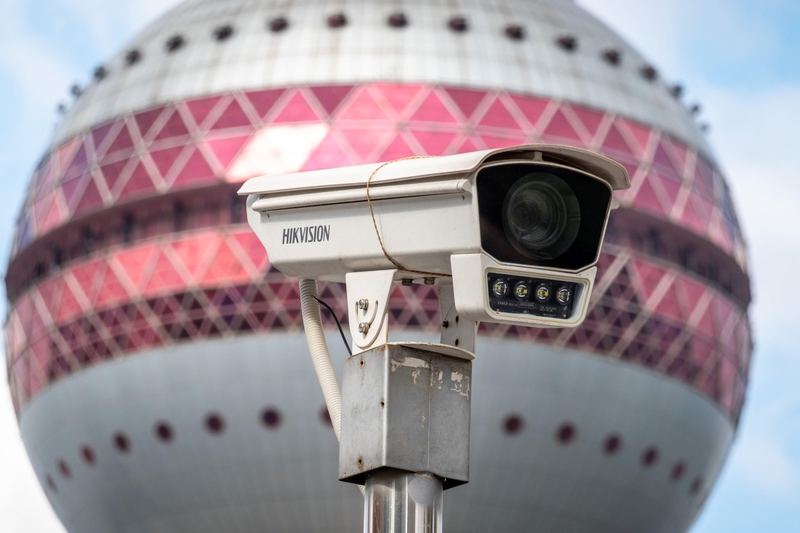This week I’ll speak at a cross-party event in Parliament calling on the UK government to act against Chinese companies complicit in the genocide of my people, the Uyghurs. Last month, the Health Secretary announced that Chinese surveillance firm, Hikvision, is banned from competing for new business with the Department of Health and Social Care. This was a welcome decision, and I thanked the Minister at the time for standing firmly with my people. However, more needs to be done to codify a consistent response. Our leaders need to ensure all firms implicated in the horrible and ongoing violations in the Uyghur region are held accountable. We need to ensure there are no holes in our system that can be exploited.
The plight of my fellow Uyghurs still in our homeland is desperate. Conservative estimates place the number of Uyghurs in extrajudicial detention at around one million – but we believe the real figure to be much higher, at over 2 million. The Chinese state and its partners have carried out forced sterilization, “re-education”, and have taken control over, defiled and destroyed my community’s places of worship. This persecution is fuelled by surveillance, and we need to exhibit a comprehensive understanding of the methods that have been used by the Chinese government to turn my homeland into a high-tech open-air prison.
Hikvision, which is also sanctioned by the United States, contributes to the most recognised form of surveillance in the region. The company manufactures security cameras that use facial recognition to monitor the movement of people throughout the region, including in the so-called “re-education camps” that house Uyghurs against their will. However, there are other, equally troubling forms of surveillance which require a more calibrated response. The leading example is the Beijing Genomics Institute (BGI), which has been linked to the forced collection of Uyghurs’ genetic data.
The COVID-19 pandemic exposed the need for a robust global genomics industry able to track and identify new variants, helping governments prepare and protect accordingly, and yet very little is known about the more insidious aspects of this emerging technology. The Chinese government’s approach to genomics is telling: a 2015 review of its national security strategy highlighted genomics as a national security issue. Considering this was followed by a 2019 law requiring that all Chinese firms cooperate with the state on national security issues, the existence of a large Chinese genomics company with a global footprint is cause for concern.


This brings me back to BGI, which is today one of the largest genomics firms in the world. There is a lot we do not know about BGI’s activities due to a pervasive lack of transparency, but we do know that it has contributed to Chinese state efforts to document the genetic material of Uyghurs and other non-Han ethnic groups and established a ‘judicial collaboration centre’ in the Uyghur homeland. This genetic data collection, and the racial profiling it enabled, was one of the first stages of the genocide currently being perpetrated against my people. The company has also collected the genetic codes of various groups in order to develop strategies to improve combat effectiveness of Chinese troops at high altitudes.
Alarmingly, BGI’s reach extends to our country. Beijing to Britain, an intelligence briefing focusing on China, has described BGI as “a company that has links to British universities, companies and institutions on a scale that would make Huawei blush,” after the Chinese telecoms giant was banned from providing services to Britain’s 5G network. This follows the National Security Commission on Artificial Intelligence (NSCAI) in the United States finding that BGI serves as a “global collection mechanism for Chinese government genetic databases”.
As recently as last year, BGI Group was awarded a contract by the UK Health Security Agency for testing PCR Pillar 2 COVID-19 samples and is part of the National Microbiology Framework. It also distributes a prenatal test (the ‘Nifty’ test) that collects genetic data from women. Outside of the UK healthcare system, BGI has enjoyed extensive contracts with the university sector and The Wellcome Trust. Doing business with BGI means we are turning our back on human rights and on protecting British people’s most sensitive, private data. While the government was right to ban both Huawei and Hikvision, there are glaring inconsistencies in the UK‘s approach to Chinese firms.
Our government has been cagey about its own relationship with BGI. In response to a parliamentary question, the government denied that it had any contracts with BGI. This was subject to a belated ministerial correction, accepting that BGI did in fact have a contract with Public Health England. Alarmingly, the government has been unwilling to answer a second parliamentary question about whether a national security assessment was carried out before BGI was contracted to provide genomic sequencing.
We are calling on the government to create a version of the United States’ “entities list” that can ensure Chinese companies profiting off the back of egregious human rights abuses, and potentially exposing the UK to national security risks, are identified and sanctioned accordingly. Such an entities list would help remove access to public funding, halt partnerships with UK universities and protect the data, including genetic data, of British citizens.
More needs to be done to ensure a comprehensive defence against Chinese firms that are complicit in the state’s crimes, and the UK needs to end its own naivete about the threats we are facing in this country. An entities list would be an important step forward.

